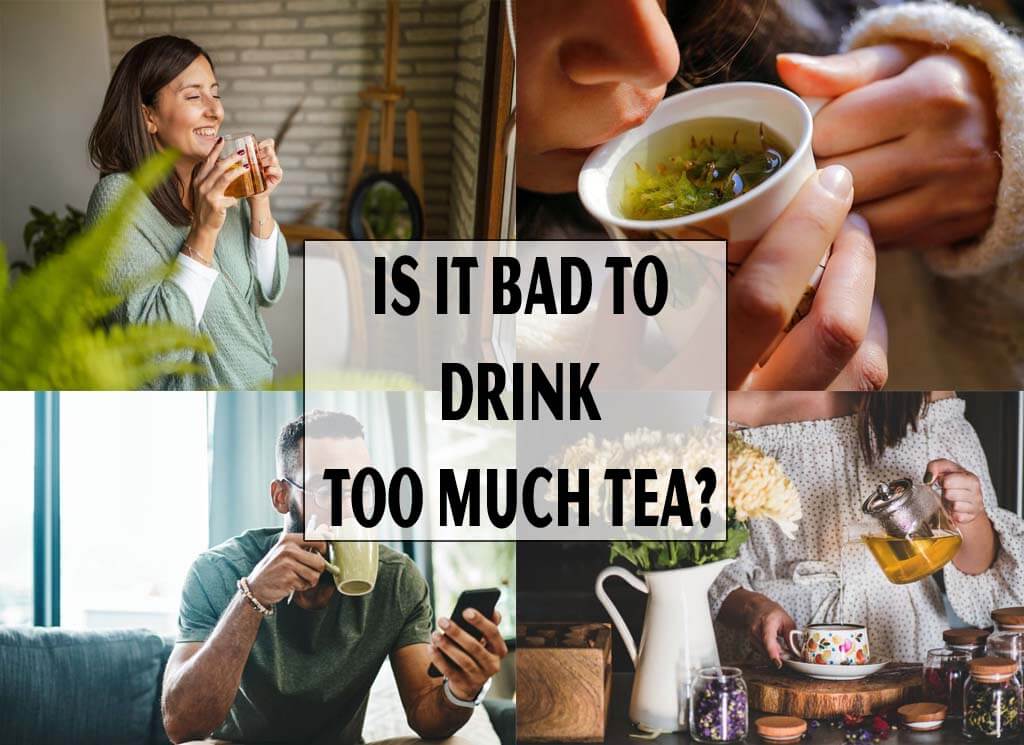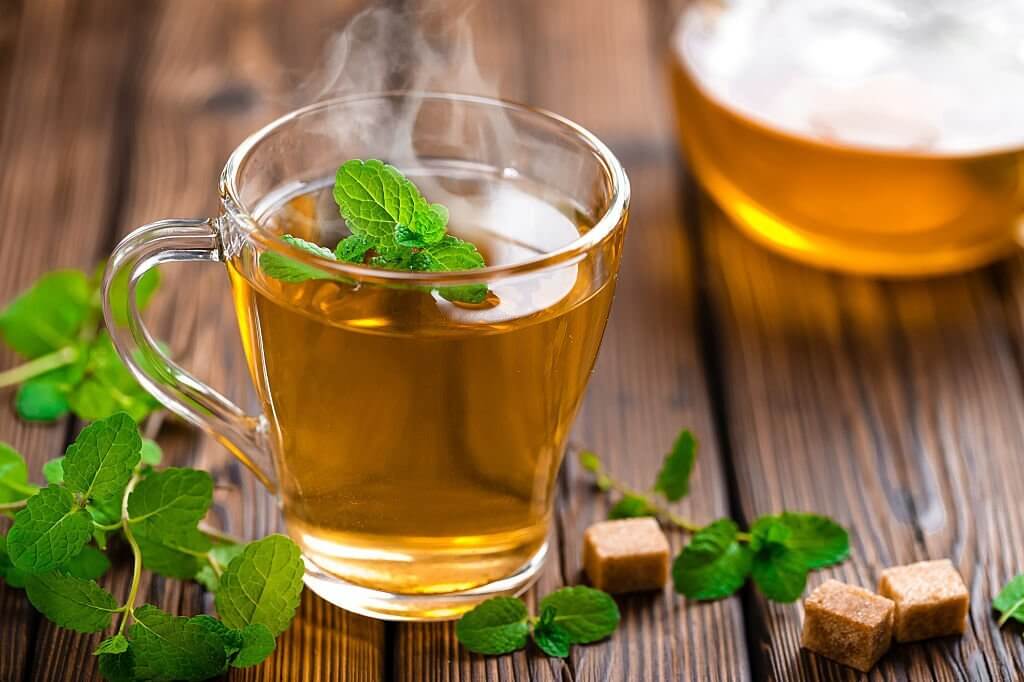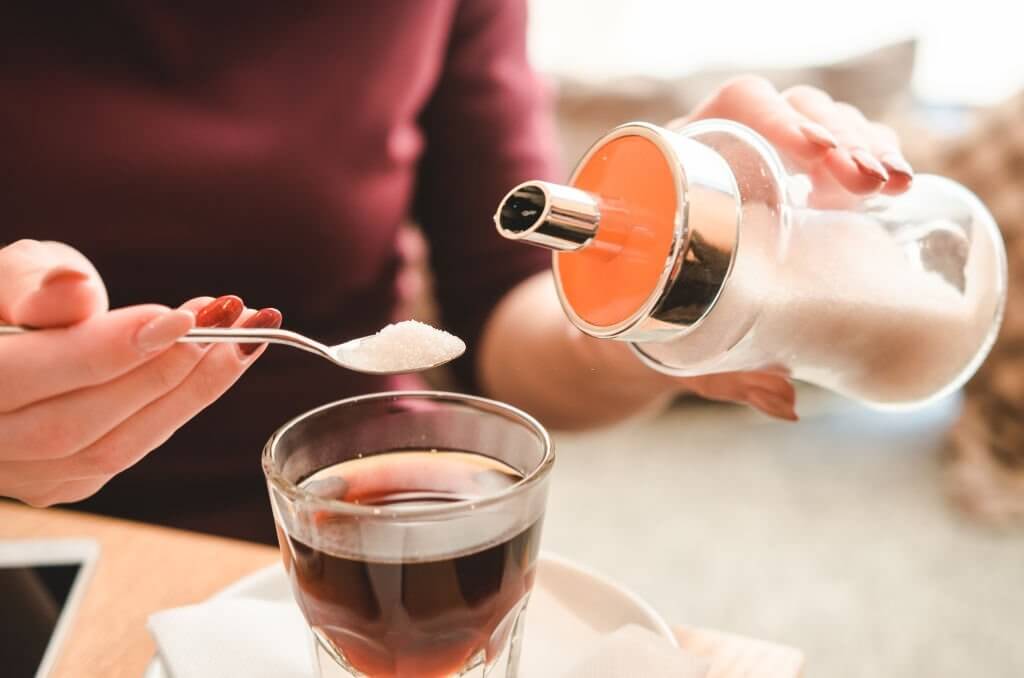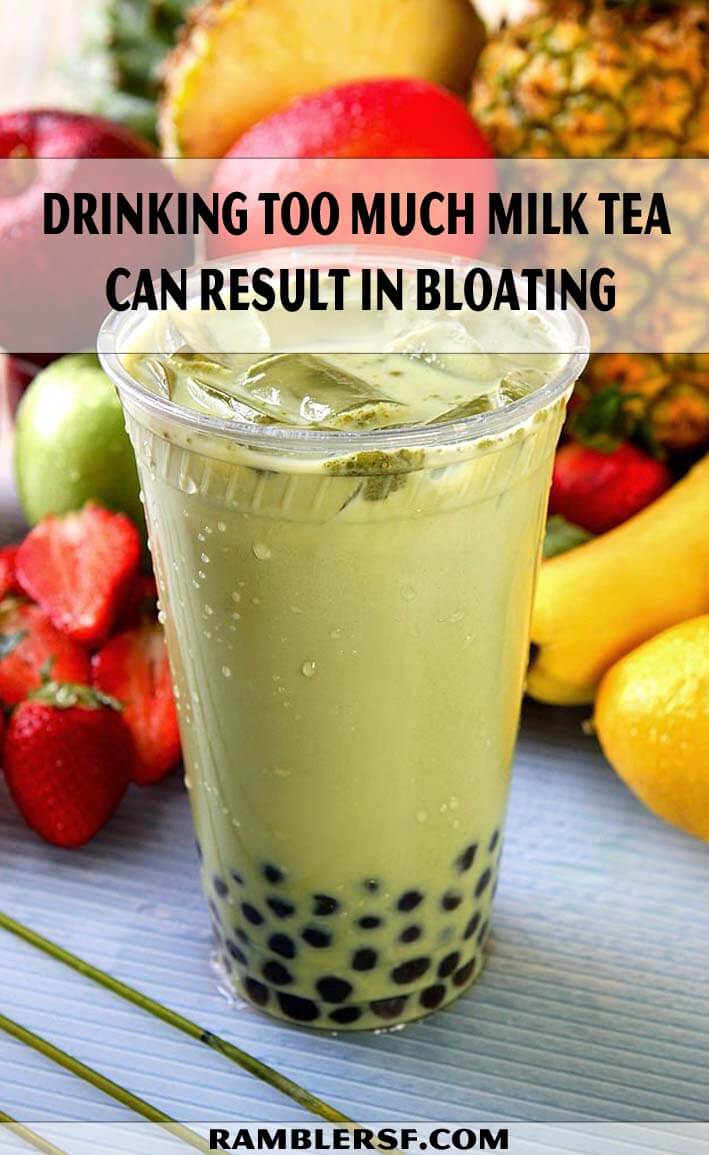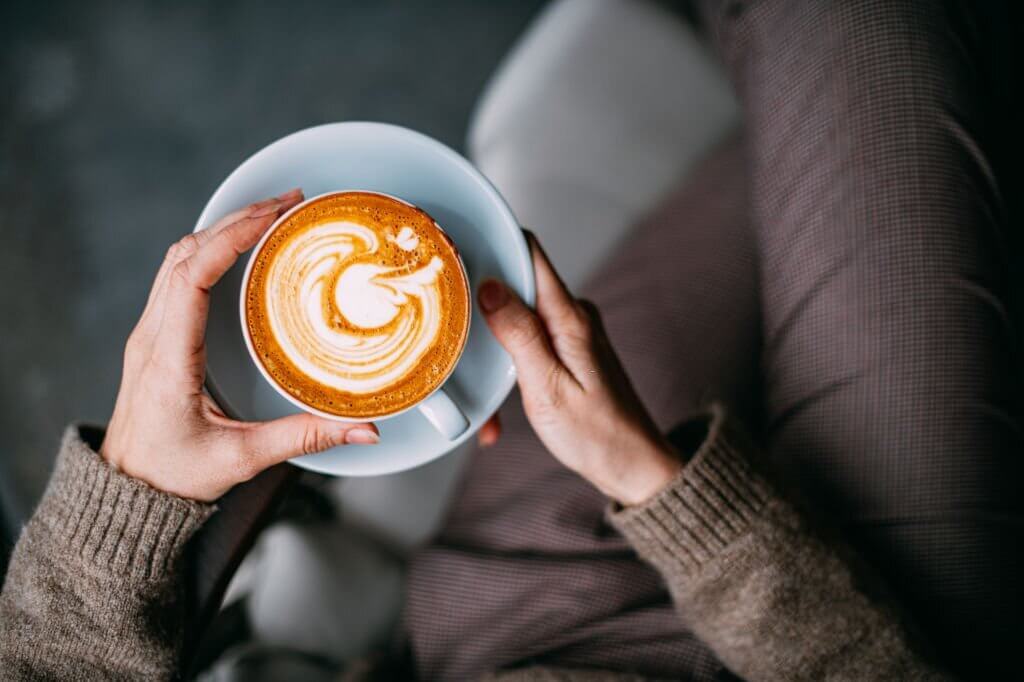If you’ve ever wondered if it’s bad to drink too much tea, you’re not alone. This article covers all the information you need to know about green, black, herbal, and sugary teas. Keep reading for more information!
Here are the top benefits of tea and why it’s bad for you. Then, you can make the right decision when it comes to your tea intake! Just remember to drink tea in moderation!
Green Tea
Studies show that drinking too much green tea can affect the health of both mother and foetus. Although it helps lower blood pressure, excessive consumption may also lead to problems like hypertension.
High blood pressure causes an irregular heartbeat, and drinking green tea can interfere with some blood pressure medication. Additionally, it can lead to sleeplessness if consumed too late at night. Moreover, the caffeine content in green tea can cause withdrawal symptoms such as headaches and irritability.
While drinking green tea is generally safe for adults, the amount you should drink can vary. Some people may notice benefits from consuming one cup daily, while others may feel better with five cups.
Some research shows that drinking five or more cups of green tea per day can reduce the risk of certain diseases, including prostate cancer and oral cancer. The amount of tea you should drink is dependent on your age, weight, and underlying medications.
If you have a coffee allergy or have high blood pressure, it’s best to reduce your intake of green tea and seek medical advice before drinking too much.
Studies have shown that drinking green tea can reduce the risk of prostate and breast cancer. Although caffeine is a good stimulant for some people, it can be hard to tolerate for others.
Since everyone metabolizes caffeine differently, drinking green tea may be a better choice for some people. Additionally, green tea can lower the risk of diabetes and heart disease. Its caffeine content helps you to burn fat and help you lose weight.
Black Tea
A 2009 study by Arab L. et al. found that drinking three or more cups of black tea a day could reduce your risk of stroke by about 21% compared to those who drink just one cup. It also showed that drinking black tea could prevent stroke, as the polyphenol theaflavins in this beverage are believed to perform a chemoprotective action on hormone-dependent breast tumors. Despite the positive effects of black tea on your health, drinking large amounts of this beverage is not recommended.
Caffeine content in black tea varies depending on the type and amount of tea. A serving of eight ounces of black tea contains approximately 42 milligrams of caffeine. The exact number depends on the type of tea you choose to drink and how long you steep it.
Taking less than 200 milligrams of caffeine a day should not cause significant effects on your health, however, if you’re feeling anxious or jittery after drinking black tea, cut back.
While more human studies are needed to confirm whether black tea can prevent cancer, studies suggest that it can reduce the risk of many chronic diseases. It also contains powerful antioxidants called polyphenols that may help reduce the risk of chronic diseases.
Consuming this type of tea can reduce inflammation in the body. In addition, it can help prevent chronic disease by helping the body reduce the levels of harmful free radicals. There are a few ways to consume this tea and get the maximum benefits from it.
Herbal Tea
Herbal tea is popular in health stores and grocery stores because of its many health benefits. It has been consumed as a natural health remedy for centuries, and was originally considered a medicinal drink.
Later, however, it became more popular as a beverage for enjoyment. As with any other beverage, there are benefits and drawbacks to drinking herbal tea. In general, however, herbal tea is safe when consumed in moderation.
Herbal tea contains polyphenols, flavonoids, and tannins, which are all powerful antioxidants. These substances work to widen the arteries, reducing blood pressure, preventing blood clots, and lowering cholesterol levels.
Additionally, the polyphenols found in tea can help prevent osteoporosis and brain deterioration. These benefits are not only evident in herbal tea, but also in regular tea, too.
Herbal tea is also considered to be good for your health, but it is best to avoid herbal tea that contains caffeine or sugar. Herbal teas are known to contain monounsaturated and polyunsaturated fats, and have no cholesterol.
They do contain small amounts of potassium and sodium. In addition, herbal tea contains small amounts of vitamins A and C. Elder tree herbal tea is believed to alleviate nasal congestion and throat soarness. Other good options include ginger and clove tea.
If you’re wondering whether drinking herbal tea is good for you, consider the health risks associated with drinking it. For example, a study conducted by the Mayo Clinic found that one out of every five deaths from liver failure are caused by herbal compounds.
That figure doubled over the past decade, which correlates with the increasing popularity of herbal teas. Ginseng can increase the risk of severe bleeding and can cause insomnia if used for long periods.
Sugary Tea
If you’re a fan of iced tea, the answer is no. In fact, a man once drank an entire gallon of the stuff every day. While this isn’t bad per se, it can be damaging to your health. In addition, too much sweetener can negatively impact your kidneys. Many people confuse sugary sodas with healthful iced tea.
Milk Tea
There is a fine line between too much milk tea and too little. While milk tea is a good beverage, drinking too much can result in bloating and even a deficiency of important nutrients, like zinc and iron.
A registered dietitian, Kelly Schmidt, says that milk tea is a perfect example of a calorie-dense beverage, but excessive consumption is not a good idea.
High sugar intake can lead to a number of adverse health effects, including gout. High blood sugar can cause starvation and can lead to a condition called diabetic ketoacidosis. A single glass of brown sugar milk tea with pearls contains about 18.5 teaspoons of sugar, far more than the recommended daily amount of six teaspoons. However, the sugar content of the beverage is a good source of calcium.
Although drinking too much milk tea can cause bloating, some studies suggest that it may have beneficial effects. Some studies suggest that milk tea may decrease the activity of antioxidants in the body.
Others suggest that milk tea is not harmful. A common recipe for milk tea includes condensed milk and sugar. A typical cup of milk tea contains about 600 ml, which is about a third of the daily recommended amount.
Drinking too much milk tea can also cause pimples. While drinking tea is a great way to boost your immunity and detoxify your body, drinking too much can cause a chemical imbalance that can lead to pimples.
This may even lead to a sleeplessness or anxiety disorder. Furthermore, drinking too much milk tea can cause an increased heart rate and clogged pores. In addition to being bad for your body, drinking too much tea can also cause your pores to clog, leading to a higher chance of acne.
Caffeine-free Herbal Tea
While there are numerous benefits to drinking herbal teas, too much consumption can have negative effects. It’s not recommended for pregnant women and nursing mothers to consume more than 100 milligrams of caffeine a day.
The company Traditional Medicinals manufactures a variety of herbal teas that can be purchased in supermarkets or health food stores. Because the company is a licensed drug manufacturer and food manufacturer, their teas may contain substances that are illegal under federal law.
The caffeine content of green and black tea varies. Green tea contains less caffeine than black tea, which contains 47 milligrams of caffeine per 8 oz. Even herbal teas, which are not made from tea leaves, can contain small amounts of caffeine. However, the caffeine content in herbal tea is insignificant enough that it can be equated to the amount of caffeine found in water.
Herbal tea is generally safe to drink throughout the day. But keep in mind that some herbal teas have a high caffeine content, making them not suitable for daily use. Even caffeine-free herbal tea can have harmful side effects if consumed in large doses. Caffeine is dangerous in large amounts, so be sure to check the label to make sure you are getting the right type of tea for your needs.
Maybe you also like:
How to Offer Drinks to Guests at Your Next Party
How to Make the Perfect Frozen Margarita
How to Make Apple Cider? How does it taste?
How Much Water Should We Drink a Day
How Much Sugar Does Alcohol Contain

